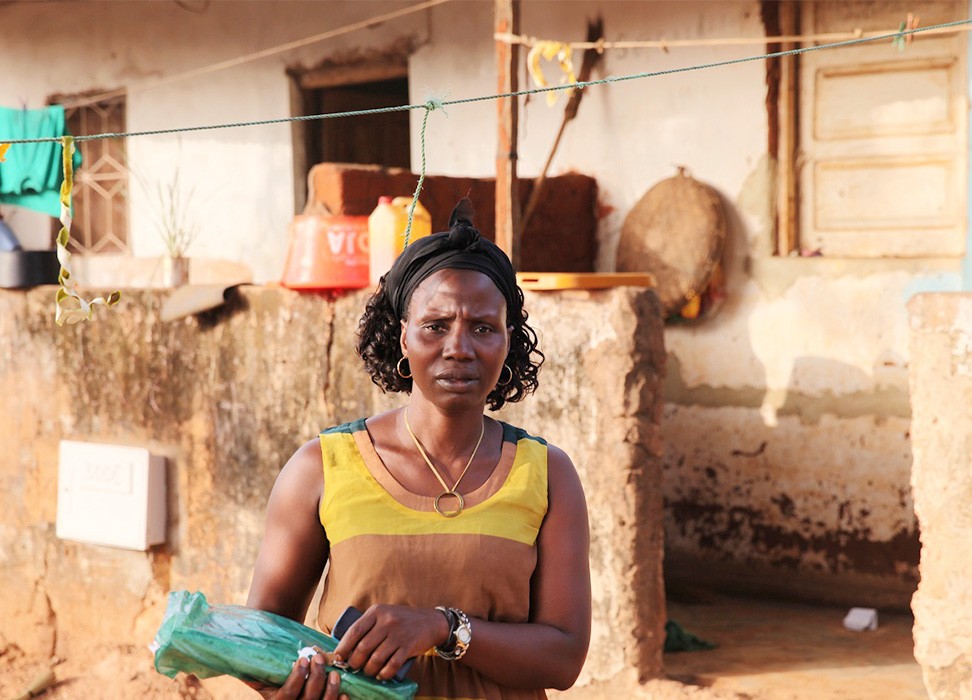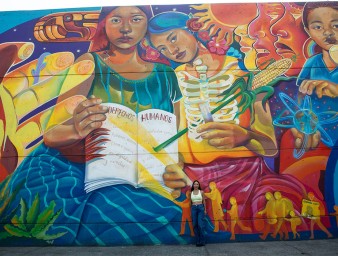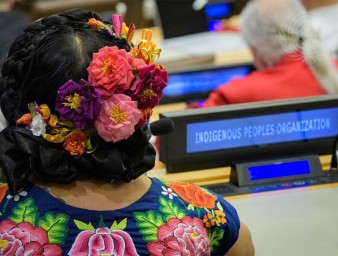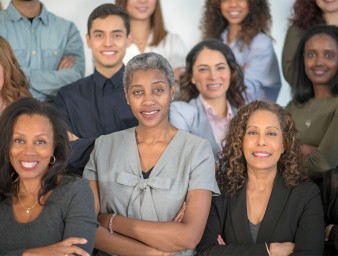Women and girls deserve full access to social security
21 July 2023

The right to social protection is a human right, but so many women and girls worldwide still can’t access it, according to a recent OHCHR information note on social protection.
“In times of social and economic instability, social protection shields those that are most affected,” said Mahamane Cisse-Gouro, Director of the Human Rights Council and Treaty Mechanisms Division, UN Human Rights. “It helps prevent social exclusion and promotes social inclusion.”
The COVID-19 pandemic, climate emergencies and related emerging conflicts, and increasing inequality have made the gender gap even worse for social security, Cisse-Gouro added.
Other reasons for this gap are caused by their position in society as girls may have their education interrupted due to early pregnancy, child, early and forced marriage, or be responsible for most of the domestic work, leading to less access to formal employment and subsequent contribution-based social security, Cisse-Gouro added.
Women also find themselves in the lowest paid jobs. Their reproductive and care roles often force them to opt out from or interrupt their access to formal employment. Older women often face a gender pension gap, he stressed.
This is especially true for migrant women who are more likely to be employed in jobs that lack occupational health and safety, according to Michele LeVoy, Director of the Platform for International Cooperation on Undocumented Migrants.
“One of the key barriers for undocumented migrant women in accessing services or justice is the fear that they might be detained and deported,” LeVoy said during the panel event.
Cisse-Gouro said to overcome all these problems, women themselves must have a say in decisions that impact them the most.
“That is the most effective way to find solutions and to secure their right to social protection is fully realized,” he said. “Yet, men continue to be over-represented in national parliaments and women continue to be under-represented in leadership positions in the private sectors and trade unions. There is a lack of women’s participation in public and political life in relation to shaping and influencing social protection policies.”
Leave no one behind
For 17-year-old Yamikani, she sees these battles unfolding every day in Malawi where poverty is extremely high, and many people are unable afford to eat three times per day. According to the young activist, 60 per cent of the children in Malawi are living in poverty and families struggle to provide for their children with basic needs.
“
Promoting the involvement of girls and women in social protection ensures gender equality.
“
Yamikani, Clerk, District’s Children's Parliament and Member of the National Children’s Parliament, Malawi
Social protection provides people with cash transfers, food, public works, and shelters, farm input subsidies and tuition for school. In Malawi, social cash transfer covers only 12 percent of children living in poverty, and only 2.1 percent of all children under five years old are covered by social cash programs, Yamikani explained at the Council panel discussion.
“I am particularly concerned that participation of girls and women in social protection decision making processes is not adequate, and it is not taken seriously,” she said. “By empowering us and valuing our perspectives, we can contribute to the creation of social protection policies and programs that genuinely address our needs, decide right approaches, prioritize and target children who are in real need.”
Monica Ferro, Director of the Geneva Office of the United Nations Population Fund, agreed and added that women’s participation and leadership has gender equality as a prerequisite.
“We need a global economy that removes all obstacles and empowers women to choose their future, to own their decisions,” she said. “Social Protection schemes play a pivotal role in doing so. In turn, a gender equal society and economy — one where women enjoy equal opportunities and outcomes in the labour market and the public and private sectors — will make social protection systems more inclusive and sustainable.”
But the challenges continue in many countries for women. Yamikani explained that in Malawi, like other countries, continue to have gender inequalities in education, health, and economic opportunities. Women and girls’ participation contributes to the design and implementation of inclusive social protection programs, she explained.
“By actively engaging us girls and women in decision-making, we challenge the existing bad practices and power structures that perpetuate gender inequality,” she said. “It is through our active participation that we can ensure social protection meets the needs and addresses the rights of women and girls. If all are involved equally, we will address the root causes of discrimination.”



